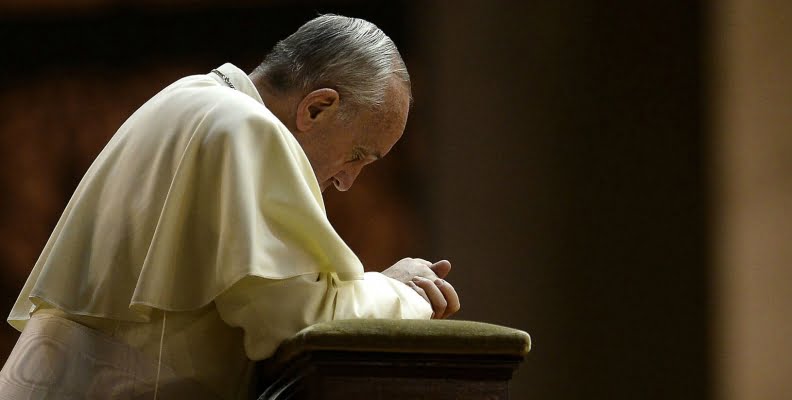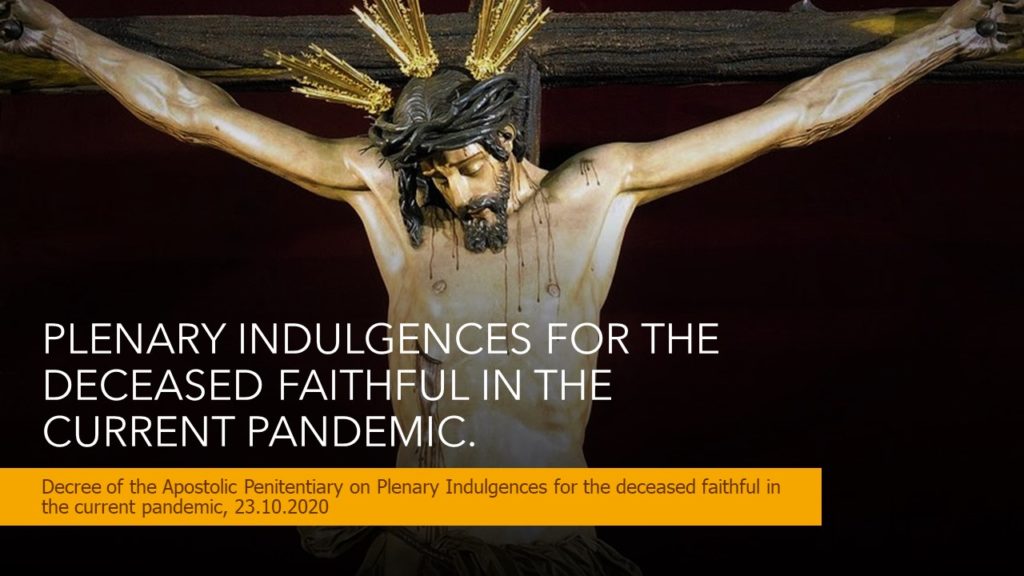POPE FRANCIS ON THE UNIVERSAL DESTINATION OF GOODS AND THE VIRTUE OF HOPE
General Audience
26 August 2020

Dear Brothers and Sisters, good morning!
In the face of the pandemic and its social consequences, many risk losing hope. In this time of uncertainty and anguish, I invite everyone to welcome the gift of hope that comes from Christ. It is He who helps us navigate the tumultuous waters of sickness, death and injustice, which do not have the last word over our final destination.
The pandemic has exposed and aggravated social problems, above all that of inequality. Some people can work from home, while this is impossible for many others. Certain children, notwithstanding the difficulties involved, can continue to receive an academic education, while this has been abruptly interrupted for many, many others. Some powerful nations can issue money to deal with the crisis, while this would mean mortgaging the future for others.
These symptoms of inequality reveal a social illness; it is a virus that comes from a sick economy. And we must say it simply: the economy is sick. It has become ill. It is sick. It is the fruit of unequal economic growth – this is the illness: the fruit of unequal economic growth – that disregards fundamental human values. In today’s world, a few rich people possess more than all the rest of humanity. I will repeat this so that it makes us think: a few rich people, a small group, possess more than all the rest of humanity. This is pure statistics. This is an injustice that cries out to heaven! At the same time, this economic model is indifferent to the damage inflicted on our common home. Care is not being taken of our common home. We are close to exceeding many limits of our wonderful planet, with serious and irreversible consequences: from the loss of biodiversity and climate change to rising sea levels and the destruction of the tropical forests. Social inequality and environmental degradation go together and have the same root (see Encyclical, Laudato Si’, 101): the sin of wanting to possess and wanting to dominate one’s brothers and sisters, of wanting to possess and dominate nature and God Himself. But this is not the design for creation.
“In the beginning God entrusted the earth and its resources to the common stewardship of mankind to take care of them” (Catechism of the Catholic Church, 2402). God has called us to dominate the earth in His name (see Gen 1:28), tilling it and keeping it like a garden, everyone’s garden (see Gen 2:15). “‘Tilling’ refers to cultivating, ploughing or working, while ‘keeping’ means caring, protecting, overseeing and preserving” (LS, 67). But be careful not to interpret this as a carte blanche to do whatever you want with the earth. No. There exists a “relationship of mutual responsibility” (ibid.) between ourselves and nature. A relationship of mutual responsibility between ourselves and nature. We receive from creation and we give back in return. “Each community can take from the bounty of the earth whatever it needs for subsistence, but it also has the duty to protect the earth” (ibid.). It goes both ways.
In fact, the earth “was here before us and it has been given to us” (ibid.), it has been given by God “for the whole human race” (CCC, 2402). And therefore it is our duty to make sure that its fruit reaches everyone, not just a few people. And this is a key element of our relationship with earthly goods. As the Fathers of the Second Vatican Council recalled, they said: “Man should regard the external things that he legitimately possesses not only as his own but also as common in the sense that they should be able to benefit not only him but also others” (Pastoral Constitution Gaudium et spes, 69). In fact, “The ownership of any property makes its holder a steward of Providence, with the task of making it fruitful and communicating its benefits to others” (CCC, 2404). We are administrators of the goods, not masters. Administrators. “Yes, but the good is mine”: that is true, it is yours, but to administer it, not to possess it selfishly for yourself.
To ensure that what we possess brings value to the community, “political authority has the right and duty to regulate the legitimate exercise of the right to ownership for the sake of the common good” (ibid., 2406).[1] The “subordination of private property to the universal destination of goods, […] is a golden rule of social conduct and the first principle of the whole ethical and social order” (LS, 93).[2]
Property and money are instruments that can serve mission. However, we easily transform them into ends, whether individual or collective. And when this happens, essential human values are affected. The homo sapiens is deformed and becomes a species of homo œconomicus – in a detrimental sense – a species of man that is individualistic, calculating and domineering. We forget that, being created in the image and likeness of God, we are social, creative and solidary beings with an immense capacity to love. We often forget this. In fact, from among all the species, we are the beings who are the most cooperative and we flourish in community, as is seen well in the experience of the saints. There is a saying in Spanish that inspired me to write this phrase. It says: “Florecemos en racimo, como los santos”: we flourish in community, as is seen well in the experience of the saints.[3]
When the obsession to possess and dominate excludes millions of persons from having primary goods; when economic and technological inequality are such that the social fabric is torn; and when dependence on unlimited material progress threatens our common home, then we cannot stand by and watch. No, this is distressing. We cannot stand by and watch! With our gaze fixed on Jesus (see Heb 12:2) and with the certainty that His love is operative through the community of His disciples, we must act all together, in the hope of generating something different and better. Christian hope, rooted in God, is our anchor. It moves the will to share, strengthening our mission as disciples of Christ, Who shared everything with us.
The first Christian communities understood this. They lived difficult times, like us. Aware that they formed one heart and one soul, they put all of their goods in common, bearing witness to Christ’s abundant grace in them (see Acts 4:32-35). We are experiencing a crisis. The pandemic has put all of us in crisis. But let us remember that after a crisis a person is not the same. We come out of it better, or we come out of it worse. This is our option. After the crisis, will we continue with this economic system of social injustice and depreciating care for the environment, for creation, for our common home? Let’s think about this. May the Christian communities of the twenty-first century recuperate this reality – care for creation and social justice: they go together … – thus bearing witness to the Lord’s Resurrection. If we take care of the goods that the Creator gives us, if we put what we possess in common in such a way that no one would be lacking, then we would truly inspire hope to regenerate a more healthy and equal world. And in conclusion, let us think about the children. Read the statistics: how many children today are dying of hunger because the distribution of riches is not good, because of the economic system as I said above; and how many children today do not have the right to education for the same reason. May this image of children in want due to hunger and the lack of education help us understand that after this crisis we must come out of it better. Thank you.
SOURCE: http://w2.vatican.va/content/francesco/en/audiences/2020/documents/papa-francesco_20200826_udienza-generale.html
EMPHASIS MINE


